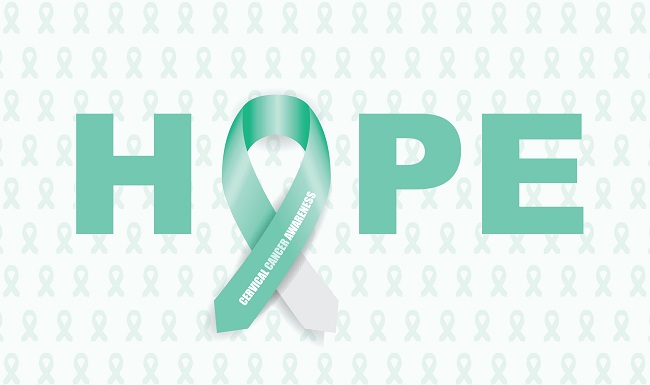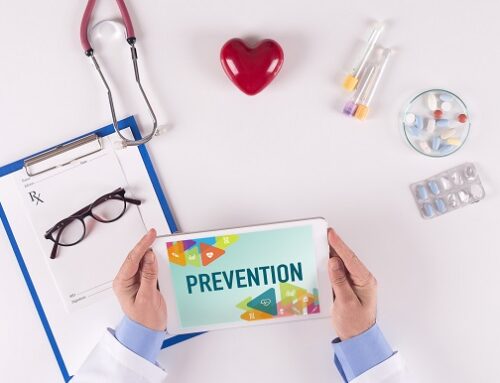By Maria Jauhar, MD
January is Cervical Cancer Screening Month and Cervical Cancer Awareness Month, and with it comes the message that cervical cancer is preventable. Virtually all cases of cervical cancer are caused by human papillomaviruses (HPVs), and just two HPV types, 16 and 18, are responsible for about 70 percent of all cervical cancer cases. However, protecting yourself is as easy as 1-2-3: vaccinate early, Pap test regularly, and HPV test when recommended.
1. Vaccinate Early
For females between the ages of 9 and 26, the first line of defense against cervical cancer is to get vaccinated to prevent HPV infection. Three vaccines are available – Gardasil, Gardasil 9, and, Cervarix – and each prevents infections with HPV types 16 and 18. Gardasil and Gardasil 9 have secondary benefits in that they prevent infection with HPV types 6 and 11, which cause 90 percent of genital warts. All three vaccines require three injections into muscle tissue administered over a six-month period.
While Gardasil and Gardasil 9 are approved by the FDA for use in females ages 9 through 26, Cervarix is approved for use in females only through 25.
If you need another reason to get vaccinated, then consider this: Not only do these vaccines protect you against cervical cancer, but they also provide partial protection against a few additional HPV types that can cause other types of cancer, a phenomenon called cross-protection.
To schedule your vaccination, call us at 912-897-6832 or click here to submit an appointment request.
2. Pap Test Regularly
While HPV vaccines are your first line of defense, it is still important to undergo regular cervical cancer screening. Why? Because HPV vaccines are not guaranteed to protect against all HPV infections that cause cervical cancer.
The most common cervical cancer screening is the Pap test, which is also called the Pap smear. This test looks for cell changes on the cervix – pre-cancers – that might become cervical cancer if they are not treated appropriately.
The Pap test is recommended for all women between the ages of 21 and 65 years old and can be done in a doctor’s office or clinic. During the Pap test, the doctor will examine the vagina and the cervix, and collect a few cells and mucus from the cervix and the area around it. The cells are then placed on a slide or in a bottle of liquid and sent to a laboratory. The laboratory will check to be sure that the cells are normal.
The only cancer for which the Pap test screens is cervical cancer. It does not screen for ovarian, uterine, vaginal, or vulvar cancers. So even if you have a Pap test regularly, if you notice any signs or symptoms that are unusual for you, see a doctor. If your Pap test results are normal, your doctor may tell you that you can wait three years until your next Pap test.
If you have a low income or do not have health insurance, you may be able to get a free or low-cost Pap test through the National Breast and Cervical Cancer Early Detection Program. Find out if you qualify.
To schedule your Pap test, call us at 912-897-6832 or click here to submit an appointment request.
3. HPV Test When Recommended
The HPV test looks for the human papillomaviruses that can cause cell changes that can become cancerous. If you are at least 30 years old, then your doctor can perform an HPV test and a Pap test at the same time, and the cells collected during the Pap test will also be tested for HPV at the laboratory.
If your test results are normal, your chance of getting cervical cancer in the next few years is very low. Your doctor may then tell you that you can wait as long as five years for your next screening. But you should still go to the doctor regularly for a checkup.
If you are 21 to 65 years old, it is important for you to continue getting a Pap test as directed by your doctor – even if you think you are too old to have a child or are not having sex anymore. If you are older than 65 and have had normal Pap test results for several years, or if you have had your cervix removed as part of a total hysterectomy for non-cancerous conditions, like fibroids, your doctor may tell you that you do not need to have a Pap test anymore.
To learn more about our preventive medicine services, call us at 912-897-6832 or click here to submit an appointment request.





